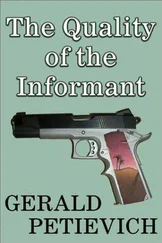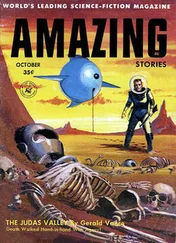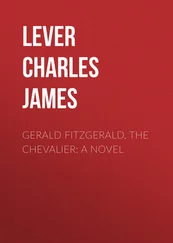‘I knocked. A man came; shaggy and wild as a bear, but a blond Russian. He let me in. The hut was full of smoke, and hung with traps and the pelts of fur animals.
‘On the stove – one sleeps on the brick stove in the Siberian winter – lay a woman, very still. I have never seen a face quite like hers. It was bronze-tinted, and comely, broad and strong. I could not define the racial type of that face. On the cheeks were things that looked like blue tattoo-marks, and there were rings in her ears.
‘“Is she asleep?” I asked, and my host replied: “Yes, for ever.” “I am a doctor,” I said; and he answered: “You are too late.”
‘The man betrayed no emotion. Maybe he was mad, with the loneliness of the place? Soon he told me the woman’s story. Absolutely simply, he dropped his brief sentences. Here is what he said:
* * *
I have lived here all my life. I think I am fifty. I do not like people around me.
About fifteen … no, sixteen years ago I made a long journey. I was hunting wolves, to sell their skins. I went very far, seven days’ journey. Then there was a storm. I was lucky. I found a big rock, and hid behind it from the wind. I waited all night. Dawn came. I got ready to go.
Then I see something.
The wind and storm have torn up the ground in one place, and I think I see wood. I kick it. I hit it with my axe. It is wood. It breaks. There is a hole.
I make a torch with some old paper that I have, and drop it down. There is no poisonous air. The torch burns. I take my lamp, and, with a little prayer, I drop down.
There is a very long hut. It is very cold and dry. I see in the light of my lamp that there are horses. They are all standing there, frozen; one with hay or something, perhaps moss, between his teeth. On the floor is a rat, frozen stiff in the act of running. Some great cold must have hit that place all of a sudden – some strange thing, like the cold that suddenly kills elephants that are under the snow for ever.
I go on. I am a brave man. But this place makes me afraid.
Next to the stable is a room. There are five men in the room. They have been eating some meat with their hands. But the cold that came stopped them; and they sit – one with his hand nearly in his mouth; another with a knife made of bronze. It must have been a quick, sudden cold, like the angel of death passing. On the floor are two dogs, also frozen.
In the next room there is nothing but a heap of furs on the floor, and sitting upon the heap of furs is a little girl, maybe ten years old. She was crying, ever so long ago. There are two round little pieces of ice on her cheeks, and in her hand a doll made of bone and a piece of old fur. With this she was playing when the Death Cold struck.
I wanted more light. There was a burnt stone which was a place for a fire.
I look. I think that in the place where the horses are there will be fodder. True; there is a kind of brown dried moss. The air is dry in that place! But cold!
I take some of this moss to the stone, and put it there and set light to it. It burns up bright, but with a strong smell. It burns hot. The light comes right through the big hut, for there are no real walls between the rooms.
I look about me. There is nothing worth taking away. Only there is an axe made of bronze. I take that. Also a knife, made of bronze too; not well made, but I put it in my belt.
Back to the room with the furs in it, where the fire is blazing bright. I feel the furs. They are not good enough to take away. There is one fur I have never seen, a sort of grey bear-skin, very coarse. The men at the table, I think, must have been once, long ago, strong men and good hunters. They are big – bigger than you or me – with shoulders like Tartar wrestlers. But they cannot move any more.
I stand there and make ready to go. There is something in this place I do not like. It is too strange for me. I know that if there are elephants under the frost, still fresh, then why not people? But elephants are only animals. People, well, people are people.
But as I am turning, ready to go, I see something that makes my heart flutter like a bird in a snare. I am looking, I do not know why, at the little girl.
There is something that makes me sorry to see her all alone there in that room, with no woman to see to her.
All the light and the heat of the fire is on her, and I think I see her open her eyes! But is it the fire that flickers? Her eyes open wider. I am afraid, and run. Then I pause. If she is alive? I think. But no , I say, it is the heat that makes her thaw.
All the same, I go back and look again. I am, perhaps, seeing dreams. But her face moves a little. I take her in my arms, though I am very afraid, and I climb with her out of that place. Not too soon. As I leave, I see the ground bend and fall in. The heat has loosened the ice that held it all together – that hut.
With the little girl under my coat, I go away.
No, I was not dreaming. It is true.
I do not know how. She moves. She is alive. She cries. I give her food; she eats.
That is her, over there, master. She was like my daughter. I taught her to talk, to sew, to cook – everything.
For thousands and thousands of years, you say, she has lain frozen under that snow – and that this is not possible. Perhaps it was a special sort of cold that came. Who knows? One thing I know. I found her down there and took her away. For fifteen years she has been with me – no, sixteen years.
Master, I love her. There is nothing else in the world that I love.
* * *
‘That’s all,’ the doctor said.
‘No doubt the man was mad. I went away an hour later. Yet I swear – her face was like no face I have ever seen, and I have travelled. Some creatures can live, in a state of suspended animation, frozen for years. No, no, no, it’s quite impossible! Yet, somehow, in my heart I believe it!’
WE are a queer people: I do not know what to make of us. Whatever anyone says for us is right; whatever anyone says against us is right. A conservative people, we would turn out our pockets for a rebel; and prim as we are, we love an eccentric.
We are an eccentric people. For example: we make a cult of cold baths – and of our lack of plumbing – and a boast of such characters as Dirty Dick of Bishopsgate, and Mr Lagg who is landlord of The White Swan at Wettendene.
Dirty Dick of Bishopsgate had a public house, and was a dandy, once upon a time. But it seems that on the eve of his marriage to a girl with whom he was in love he was jilted, with the wedding breakfast on the table. Thereafter, everything had, by his order, to be left exactly as it was on that fatal morning. The great cake crumbled, the linen mouldered, the silver turned black. The bar became filthy. Spiders spun their webs, which grew heavy and grey with insects and dirt. Dick never changed his wedding suit, nor his linen, either. His house became a byword for dirt and neglect … whereupon, he did good business there, and died rich.
Mr Lagg, who had a public house in Wettendene, which is in Sussex, seeing The Green Man, redecorated and furnished with chromium chairs, capturing the carriage trade, was at first discouraged. His house, The White Swan, attracted the local men who drank nothing but beer – on the profit of which, at that time, a publican could scarcely live.
Lagg grew depressed; neglected the house. Spiders spun their webs in the cellar, above and around the empty, mouldering barrels, hogsheads, kilderkins, nipperkins, casks, and pins. He set up a bar in this odorous place – and so made his fortune. As the dirtiest place in Sussex, it became a meeting place for people who bathed every day. An American from New Orleans started the practice of pinning visiting cards to the beams. Soon, everybody who had a card pinned it up, so that Lagg’s cellar was covered with them.
Читать дальше











